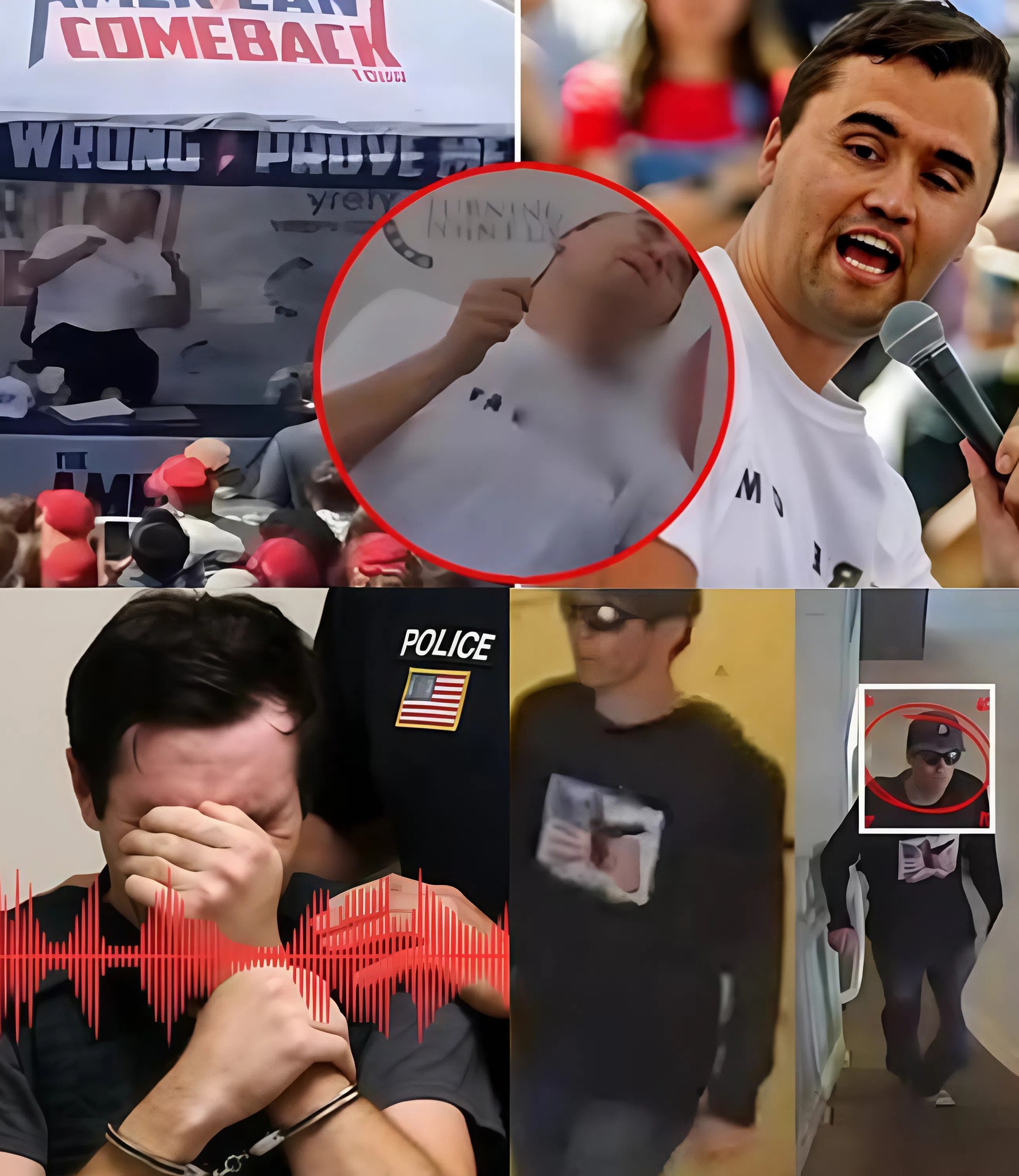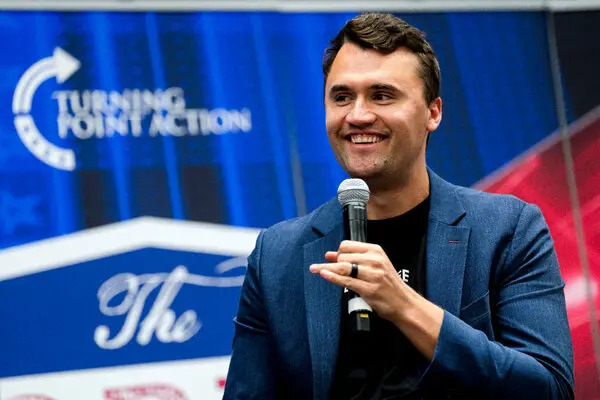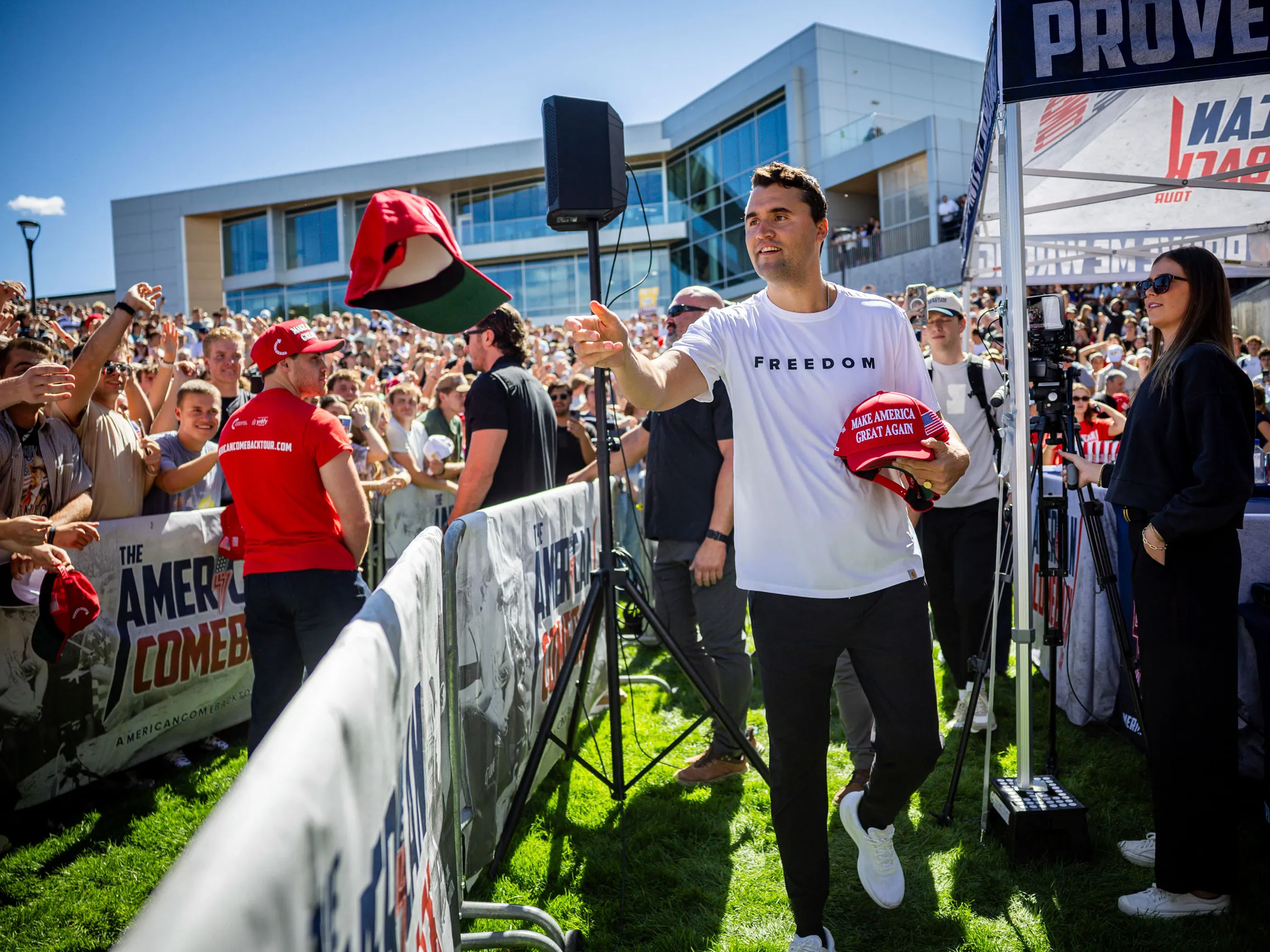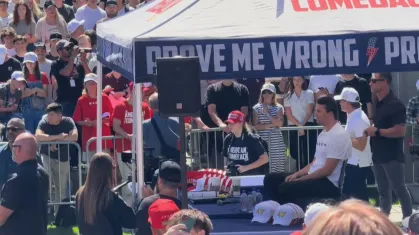
The world of American politics and media thrives on controversy, but every so often, a revelation arrives that shakes even the most jaded observers. That moment came late Friday night when a newly leaked 911 call linked to the Charlie Kirk case surfaced online. The recording, barely three minutes long, is now dominating national conversation — not because of its brevity, but because of its potentially explosive implications.
What might otherwise have been dismissed as another piece of digital noise has instead ignited a storm across the political and legal landscape. Analysts are calling it the most consequential leak of the year, while insiders insist it could rewrite the entire narrative of the case. For supporters and critics alike, the tape is not just a new chapter — it’s a plot twist no one saw coming.
The Night That Sparked a Firestorm
The Charlie Kirk case has already been one of the most polarizing stories in recent memory. For weeks, headlines have been filled with speculation, partisan outrage, and conflicting reports. Depending on which political camp one listens to, Kirk has either been unfairly targeted by an establishment eager to silence him, or he has carefully dodged accountability while playing victim to his base.
But amid the noise, one crucial detail had remained locked away: the original 911 call placed on the night in question. In high-profile cases, such calls are often the first piece of raw evidence investigators review, yet the public rarely hears them until long after the fact. Their release — especially in an unauthorized, leaked form — is almost always seismic.

And in this case, seismic feels like an understatement.
What the Audio Reveals
The leaked tape, uploaded anonymously to multiple platforms before being swiftly replicated across TikTok, X (formerly Twitter), and YouTube, paints a picture that does not align neatly with the official timeline. While full transcripts have yet to be authenticated, early reviews suggest three startling revelations:
A Shifting Timeline – The caller’s account of when key events occurred diverges sharply from what has been publicly reported. If true, this could mean the accepted version of the night’s events is fundamentally flawed.
An Unidentified Presence – Analysts claim at least one other voice can be faintly heard in the background of the call, contradicting prior claims about who was — or wasn’t — on the scene. The presence of a third party would raise immediate questions about credibility and motive.
Contradictory Statements – In the heat of panic, the caller makes remarks that directly conflict with sworn testimony later given under oath. This alone could open the door to perjury accusations or calls for renewed investigation.
Criminal justice expert Professor Angela Martinez of Georgetown University put it bluntly: “911 calls are raw evidence. They capture people in real time, before they have the chance to curate their words. That’s why this tape matters. If authentic, it could be devastating.”
How Charlie Kirk Became an Influential Figure in Right-Wing Politics – The New York Times
Experts React: “A Game-Changer”
Within hours of the leak, networks scrambled to bring in legal and forensic experts. Former federal prosecutor David Klein told CNN that the tape “doesn’t just raise questions — it detonates them.” He argued that if discrepancies are confirmed, “the defense strategy, the prosecution’s narrative, and even media coverage of the case will all need to be re-examined.”
Meanwhile, forensic audio specialist Dr. Samuel Patel urged caution. “Leaked audio is tricky. Without knowing chain of custody, we can’t rule out editing or manipulation. That said, even raising the possibility of authenticity has enormous impact in the public square.”
Political commentators, however, were less restrained. Conservative pundit Mark Ridley insisted the leak proved Kirk had been misrepresented by hostile forces. On the other side, progressive analyst Lisa Reynolds drew a sharp comparison: “This feels like the Ray Rice elevator footage moment. For weeks, we had speculation. But once people saw — or in this case, heard — the raw material, everything changed.”
The Power of Sound in Shaping Public Perception
Why does an audio clip matter so much when countless articles, witness statements, and commentaries already exist? The answer lies in the unique credibility of real-time recordings.
Hearing panic in someone’s voice, the tone of urgency, or even background noises provides a visceral immediacy no written statement can replicate. It strips away polish and spin. In courtrooms and public opinion alike, that rawness often proves decisive.
History offers chilling precedents. The release of George Floyd’s 911 transcripts shifted public discourse before video footage became central to the case. In the Trayvon Martin shooting, the audio of desperate cries for help became one of the trial’s most hotly contested elements. Now, Kirk’s 911 leak threatens to enter that same canon of “defining recordings” that outlive their original cases.
What Charlie Kirk Meant to Conservatives | The New Yorker

Political Fallout: A Nation Divided
Unsurprisingly, the leak has deepened partisan divides. Within hours, hashtags like #CharlieKirkTape and #911Leak trended nationwide. Supporters of Kirk flooded platforms with claims that the audio vindicated him, while critics argued the tape exposed deeper deception.
Political strategist Eleanor Hughes described the fallout as “a Rorschach test for America’s polarization.” “What people hear in that tape depends on what they already believe about Charlie Kirk. That’s the danger and the power of leaks — they don’t just inform, they confirm biases.”
Already, lawmakers are weighing in. Some Republican allies have called for immediate investigations into how the audio was leaked, suggesting political sabotage. Democrats, meanwhile, are pressing for the Justice Department to re-examine the entire case in light of the contradictions.
The most striking part? Neither Kirk nor his legal team has commented — a silence many interpret as strategic.
Could This Alter the Legal Case?

From a legal standpoint, the implications are enormous. If authenticated, the call could be admissible evidence in court proceedings, especially if it directly contradicts sworn testimony.
“This could open the door to perjury charges,” Klein noted. “If someone swore under oath to one version of events but the 911 call reveals otherwise, that’s a legal minefield.”
Defense attorneys, however, may seize on the leak to argue misconduct. Unauthorized release of sensitive evidence could be grounds for mistrial claims or at least a reshaping of jury perception.
Either way, experts agree: the courts will not be able to ignore it.
The Cultural Impact Beyond the Courtroom
Even if the legal impact remains uncertain, the cultural impact is undeniable. In an age where perception often outweighs facts, leaked media becomes a powerful tool of persuasion.
Após morte de Charlie Kirk, investigação sobre atirador segue em andamento | CNN Brasil
As Reynolds observed: “We live in an era of viral justice. The court of TikTok often moves faster than the court of law. And once people form their impressions, no jury, no judge, no verdict can completely erase them.”
This raises deeper questions: Who leaked the audio, and why now? Was it an insider determined to expose truth, or a calculated move by political operatives? Without answers, speculation itself becomes part of the narrative.

A Developing Story with No Clear Ending
For now, the nation waits. Law enforcement agencies have not confirmed the tape’s authenticity. Kirk’s team remains silent. Analysts continue dissecting every second of the recording, while politicians weaponize its contents to fuel their agendas.
But one truth is undeniable: this leak has changed the trajectory of the case. Even if later proven inauthentic, the damage — or revelation — is already done. Public perception has shifted, and with it, the political stakes.
As Professor Martinez concluded: “Evidence like this doesn’t just shape trials. It shapes history. Ten years from now, people may not remember the court filings. But they’ll remember the tape.”
